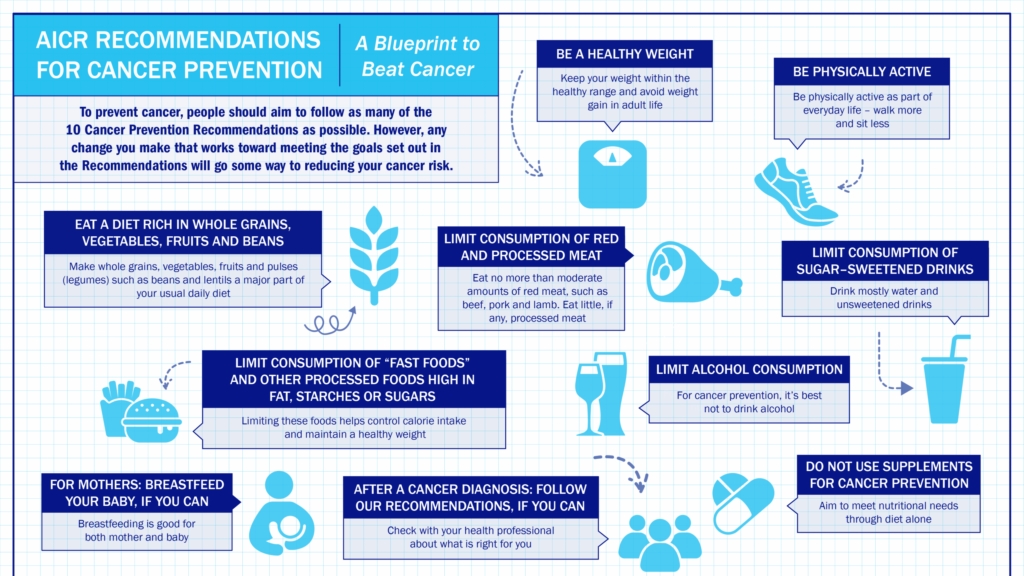
With the rising prevalence of cancer, health professionals are focusing more on prevention, with particular emphasis on the role of diet and nutrition. As per recent studies, nutritionists highlight that dietary consumption can have a significant influence on cancer risk, potentially preventing up to 25% of cancer cases in the U.S. through improved nutrition.
The Relationship Between Obesity, Inflammation, and Cancer
Overweight or obese individuals are at a higher risk for various cancers, including breast, liver, and colon cancer. An unhealthy diet can lead to chronic inflammation, which in turn may result in cell proliferation and mutations that may cause cancer. Research suggests that diets high in sugar, refined carbohydrates, and processed foods can elevate the risk of chronic inflammation.
Importance of a Plant-Forward Diet
Experts recommend a plant-forward diet as one of the primary strategies for reducing cancer risk. This includes a focus on plant-based proteins, lean meats, whole grains, vegetables, and fruits, while avoiding highly processed foods. Recent studies suggest that legume consumption can be inversely associated with colorectal cancer, providing further evidence for the importance of plant-based foods in reducing cancer risk. Increasing legume consumption by just one portion per week can decrease colorectal cancer risk by 13%, emphasizing the crucial role of dietary choices in preventing chronic diseases.
The Role of Alcohol and Supplements
While diet plays a key role, other lifestyle factors such as alcohol consumption can also affect cancer risk. Experts recommend limited alcohol intake and caution against relying on supplements as a replacement for a health-promoting diet. Vitamins and minerals are important, but they are not substitutes for chemotherapy and vaccines. It’s essential to remember that supplements and vitamins are meant to complement a healthy diet, not replace it.
Practical Tips for Dietary Changes
Making dietary changes may seem daunting, but it can be simplified with some practical tips. Firstly, get comfortable in the kitchen. Experimenting with different ways of cooking vegetables can make them more appealing and increase their consumption. Limiting caloric intake and avoiding processed foods can also significantly reduce the risk of cancer. Remember, eating more red meat is linked to a higher risk of developing diabetes, another condition that can increase cancer risk. It’s also crucial to remember that physical activity is key for maintaining overall health and further reducing cancer risk.
In conclusion, maintaining a healthy diet and lifestyle can play a significant role in reducing cancer risk. The evidence is clear: better nutrition can prevent a substantial proportion of new cancer cases. So, it’s time to take control of our health and make informed dietary choices for a healthier future.
